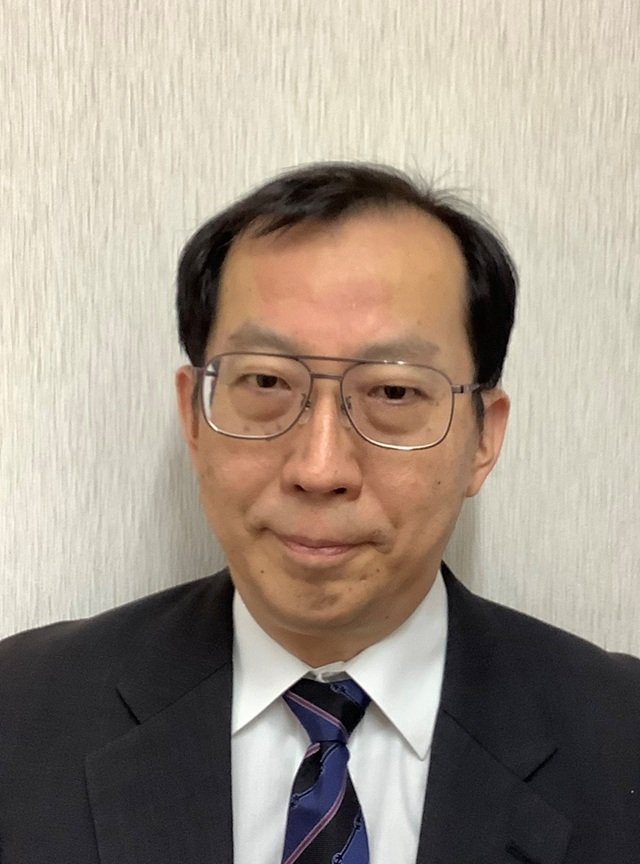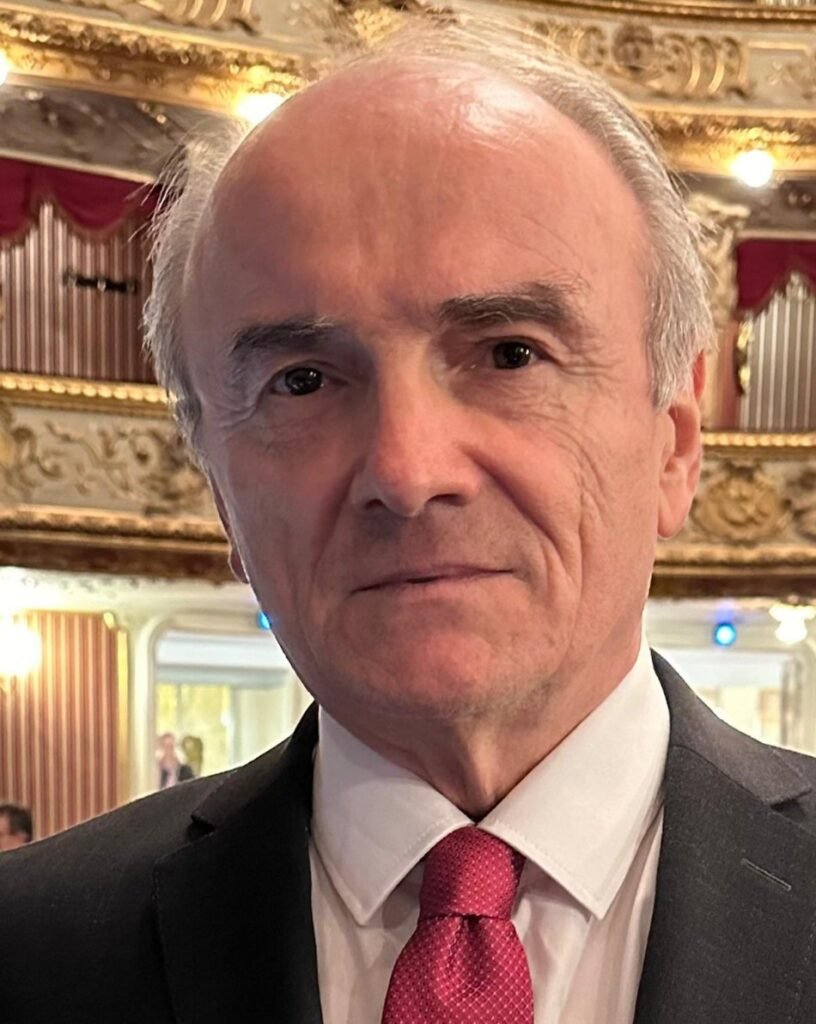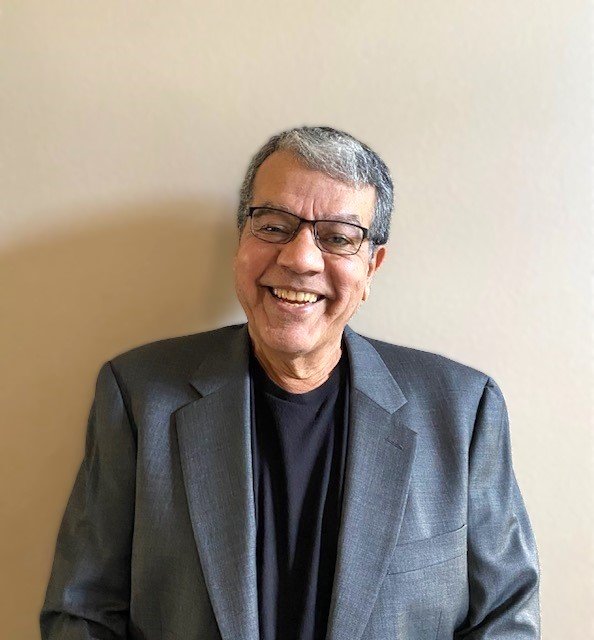27th international symposium
QUALITY - YESTERDAY, TODAY, TOMORROW
Šibenik, Croatia, 25th - 27th of March 2026.
Thematic areas:
- Papers should refer to the following thematic areas:
- Quality – historical and theoretical assumptions
- Quality as a scientific discipline
- Control, assurance and management of the quality of products (services), business processes and the process structure of organizations
- Quality and quality management in different sectors and business areas
- Business quality management and business excellence in the real and public sector
- Sustainability, energy efficiency, sustainable management systems and socially responsible business
- Industry 4.0 and 5.0, Quality 4.0 and 5.0 and SMART models and solutions
- Resilience, risk management and business continuity management
- Quality infrastructure – metrology, standardization, accreditation, tests, inspections, and consumer protection
- Audit, certification and quality marks
- Controlling and financial aspects of quality and competitiveness with the aim of continuous business success
- Good business practices (GMP, GDP…)
- Standardization of management systems and integrated management systems
- Quality of life, anti-corruption systems, and sustainable and smart cities
- Education and training, consulting, and ensuring the competence of people and organizations for management systems
- Quality and art
Deadlines
- Abstracts submission: 1st of February 2026
- Paper submission: 25th of May 2026
Important documents
- 1st Notification 27th International Symposium for Quality
- Program
- Full program
- Press release (.pdf)
- Hotel booking link
- Instruction for authors (.pdf)
- Sponsorship
Registration:
Organizing committee:
- Full Professor Krešimir Buntak, PhD, UNIN – President
- Ljubica Kolbas, HDMK – Secretary
- Gabrijela Abramović, Zagreb Franjo Tuđman Airport, Velika Gorica
- Viktorija Adamić Ciglar, UNIN, Koprivnica/Varaždin
- Anita Bešker, Oskar, Zagreb
- Nikola Biškup, UNIN, Koprivnica/Varaždin
- Igor Božičević, HZN, Croatia
- Branimir Buntak, MBA, CARNET, Zagreb
- Vesna Dodiković Jurković, PhD, AZVO, Croatia
- Nives Domjan Kačarević, UNIN, Koprivnica/Varaždin
- Associate Professor Miroslav Drljača, PhD, HDMK, Zagreb
- Associate Professor Danijela Ferjanić Hodak, EFZG, Zagreb
- Ante Klečina, UNIN, Koprivnica/Varaždin
- Aleksandra Kljajić, FINA, Zagreb
- Dijana Katica, MSc, Selo Members’ Club, Zagreb
- Smiljana Kolundžić, HUMS, KB Merkur, Zagreb
- Assistant Professor Ivana Martinčević, PhD, UNIN, Koprivnica/Varaždin
- Associate prof.dr.sc. Petar Mišević, HGK, Zagreb, UNIN, Koprivnica/Varaždin
- Assistant Professor Diana Plantić-Tadić, PhD, VERN, Zagreb
- Zvonimir Polanec, Oskar Edukos, Zagreb
- Đuro Tunjić, PhD, TUV Nord, Croatia
- Mihaela Kranjčević-Ščurić, PhD, UNIN
Program committee
- Associate Professor Miroslav Drljača, PhD – President
- Associate Professor Igor Štimac, PhD – Vice-president
- Juhani Anttila, MSc, IAQ, Finska
- Dubravka Belé, HDMK, Zagreb
- Professor Anita Bešker, OSKAR d.d., Zagreb, Croatia
- Assistant Professor Predrag Brlek, PhD, UNIN, Koprivnica, Croatia
- Renata Stasiak-Betlejewska, PhD, Częstochowa, Poland
- Marko Bešker, PhD, OSKAR, Zagreb, Croatia
- Assistant Professor Verica Budimir, Faculty of Tourism and Rural Development, Požega, Josip Juraj Strossmayer University of Osijek, Croatia
- Vesna Dodiković-Jurković, PhD, AZVO, Croatia
- Associate Professor Ana Globočnik-Žunac, PhD, UNIN, Croatia
- Divna Goleš, mag. oec., Polytechnic of Šibenik, Croatia
- Prof.dr.sc. Danijela Horvatek Tomić, AZVO, Croatia
- Assistant Professor Igor Klopotan, PhD, MEV Čakovec, Croatia
- Dr.sc. Đuro Tunjić, TUV Nord, Croatia
- Fitim Kurti, PhD, UNIN, Croatia
- Associate Professor Robert Maršanić, PhD, UNIN, Croatia
- Assistant Professor Ivana Martinčević, UNIN, Croatia
- Associate Professor Tomislav Mihetec, PhD, FPZ, Croatia
- Full Professor Marin Milković, PhD, UNIN, Croatia
- Associate prof.dr.sc. Petar Mišević, HGK, Zagreb, UNIN, Koprivnica/Varaždin
- Maja Mutavdžija, PhD, Vindija, Croatia
- Assistant Professor Eva Nedeliaková, PhD, University of Žilina, Slovakia
- Associate Professor Marijana Neuberg, PhD, UNIN, KC, Croatia
- Full Professor Luminita Parv, University of Brașov, Romania
- Assistant Professor Saša Petar, UNIN, KC, Croatia
- Sanja Rojčević, dipl. krim., HAA, Zagreb, Croatia
- Assistant Professor Vesna Sesar, UNIN, KC, Croatia
- Dr.sc. Nenad Sikirica, VHZK, Hrvatska
- Doris Sošić, Institute for Business Excellence, Entrepreneurs and Sustainable Systems – IBEESS, Zagreb
- Blaženka Vlahović, univ.spec.oec. Gradska plinara Zagreb d.o.o., Croatia
- Associate Professor Ana Marija Vrtodušić Hrgović, PhD, Opatija, Croatia
- Prof.dr.sc. Damir Vusić, UNiN, Varaždin/Koprivnica
- Assistant Professor Sanja Zambelli, PhD, University of Applied Sciences of Rijeka, Croatia
- Mirela Zečević, Croatian Accreditation Agency, Zagreb
Scientific editorial board:
- Assistant Professor dr.sc. Ivana MARTINČEVIĆ, UNIN, Croatia – President
- Full Professor Ivanka AVELINI HOLJEVAC, PhD, Croatia
- Full Professor Tomislav BAKOVIĆ, PhD, Zagreb, Croatia
- Full Professor Stipe BELAK, PhD, Zadar, Croatia
- Associate Professor Marko BEŠKER, Zagreb, Croatia
- Atul BHASKARRAO BORADE, PhD, Yavatmal, India
- Matija BRAČIĆ, PhD, Zagreb, Croatia
- Associate Professor Predrag BRLEK, PhD, Koprivnica, Croatia
- Full Professor Krešimir BUNTAK, PhD, Zagreb, Croatia
- Catherine Y. P. CHAN, PhD, Hong Kong, China
- Full Professor Suleyman DEGIRMEN, PhD, Mersin, Turkey
- Full Professor Zlata DOLAČEK-ALDUK, PhD, Osijek, Croatia
- Associate Professor Miroslav DRLJAČA, PhD, Velika Gorica, Croatia
- Katarina DURKOVA, PhD, Trnava, Slovakia
- Associate Professor Ines DUŽEVIĆ, PhD, Zagreb, Croatia
- Marilyn DYASON, PhD, Bedford, Great Britain
- Associate Professor Ana GLOBOČNIK ŽUNAC, PhD, KC/VŽ, Croatia
- Full Professor Dragana GRUBIŠOĆ, PhD, Split, Croatia
- Vladimir IHNAT, PhD, Bratislava, Slovakia
- Miloš JELIĆ, PhD, Belgrade, Serbia
- Associate Professor Sanja KALAMBURA, PhD, Velika Gorica, Croatia
- Professor Emeritus Michael KAYE, PhD, Great Britain
- Assistant Professor Igor KLOPOTAN, PhD, Čakovec, Croatia
- Full Professor Živko KONDIĆ, PhD, Varaždin, Croatia
- Matija KOVAČIĆ, PhD, Koprivnica, Croatia
- Fitim KURTI, PhD, Koprivnica, Croatia
- Full Professor Tonći LAZIBAT, PhD, Zagreb, Croatia
- Full Professor Hu-Chen LIU, Shanghai, China
- Associate Professor Robert MARŠANIĆ, PhD, Croatia
- Full Professor Sulejman META, PhD, Tetovo, North Macedonia
- Full Professor Jasna MESARIĆ, PhD, MS Libertas, Zagreb, Croatia
- Full Professor Pál MOLNAR, HNC for EOQ, PhD, Budapest, Hungary
- Maja MUTAVDŽIJA, PhD, Koprivnica, Croatia
- Assistant Professor Ivan NAĐ, PhD, Velika Gorica, Croatia
- Full Professor Natasa NAPRSTKOVA, PhD, Ústí nad Labem, Czech Republic
- Assistant Professor Eva NEDELIAKOVÁ, PhD, Žilina, Slovakia
- Associate Professor Marijana NEUBERG, PhD, SS, KC, Croatia
- Full Professor Luminita PARV, PhD, Brașov, Romania
- Full Professor Jasmina PAŠAGIĆ-ŠKRINJAR, PhD, Croatia
- Assistant Professor Diana PLANTIĆ-TADIĆ, PhD, Zagreb, Croatia
- Full Professor Marek POTKANY, PhD, Zvolen, Slovakia
- Full Professor Zoran PUNOŠEVAC, PhD, Kruševac, Serbia
- Associate Professor Jasminka SAMARDŽIJA, PhD, Zagreb, Croatia
- Full Professor Paulo A. da C. A. SAMPAIO, PhD, Portugal
- Full Professor Kanchana SETHANAN, PhD, Khon Kaen, Thailand
- Full Professor Mohammed SHAFIUDDIN, PhD, Sultanate of Oman
- Assistant Professor Katarina STACHOVA, PhD, Bratislava, Slovakia
- Renata STASIAK BETLEJEWSKA, PhD, Poland
- Assistant Professor Igor ŠTIMAC, PhD, Zagreb, Croatia
- Associate Professor Violeta ŠUGAR, PhD, Pula, Croatia
- Full Professor Azis ŠUNJE, PhD, Sarajevo, Bosnia and Herzegovina
- Assistant Professor Daniela TESAROVA, PhD, Brno, Czech Republic
- Ivan TOTH, PhD, Velika Gorica, Croatia
- Full Professor Robert ULEWICZ, PhD, Poland
- Full Professor Andrija VIDOVIĆ, PhD, Zagreb, Croatia
- Assistant Professor Sanja ZAMBELLI, PhD, Rijeka, Croatia
KEYNOTE SPEAKERS
Quality & Excellence Movement in Saudi Arabia, the Leadership Role of Saudi Quality Council

Dr. Ayed Alamri
President, Saudi Quality Council (SQC)
Saudi Arabia
Dr Ayed Alamri is the President of the Saudi Quality Council (SQC) and a recognised expert in the field of quality and business excellence. He is an academician member of the International Academy for Quality (IAQ) and former Chairman of the Middle East Quality Associates (MEQA).
He has led the technical team responsible for developing the Saudi Arabia National Quality Strategy, sponsored by the Saudi Standards, Metrology and Quality Organization (SASO). Throughout his career, he has actively participated in the establishment, management, assessment, and judging of numerous national and regional quality and business excellence awards.
Dr Alamri served as Chairman of the Jury for two cycles of the King Abdulaziz Quality Award, the National Quality Award of Saudi Arabia. He has more than 30 years of professional experience in quality and business excellence, including over 25 years in the aviation industry.
He holds an educational background in industrial engineering and obtained his PhD in business process re-engineering from the University of Huddersfield in the United Kingdom.
Effective Statistical Analysis: Proper Data Interpretation and Method Selection

Prof. Tomomichi Suzuki
Professor at Department of Industrial and Systems Engineering, Tokyo University of Science
Prof. Tomomichi Suzuki is a distinguished Japanese expert in statistical data analysis and quality management, with extensive academic and professional experience in industry and international standardisation bodies. He is a Professor at the Department of Industrial and Systems Engineering at Tokyo University of Science, where his work focuses on the application of statistical methods in industrial processes, systems optimisation and quality improvement.
He is an active member and senior officer within leading international quality organisations. He serves as a Board Member of the Asian Network for Quality (ANQ) and as Chairperson of ISO/TC 69 (Application of statistical methods) and its Sub-Committee SC 6 (Measurement methods and results), responsible for the development of global standards in statistical methodology and measurement. He is a member of the International Academy for Quality (IAQ) and a former Vice-President of the Japanese Society for Quality Control (JSQC).
Prof. Suzuki contributes to the advancement of statistical methods, industrial quality systems and international standardisation through research, expert engagement and participation in prominent initiatives, and is recognised as a leading figure within the global quality community.
New quality - new paradigm: concept, structure and principles

Assoc. prof. Miroslav Drljača, Ph.D.
IAQ – Academician (Board member)
Professor at the Department of Sustainable Mobility and Logistics
University North, Croatia
Doctor of economic sciences, associate professor. Selection for scientific degrees in two scientific areas, 1) the area of social sciences – the field of economics and 2) the area of technical sciences – the field of traffic and transport technology. Lectured at 7 universities in Croatia, 2 in USA. Published 230 papers. Participated in 132 international conferences. In quality management for 30 years. 40 years of work experience in civil aviation in top management positions. A member of the Scientific Council for Transport of the Croatian Academy of Sciences and Arts 2013-2019. Member of EOQ, ASQ, IAQ (Academician, Board Member). Founder and the first president of Middle and South-East European Countries Quality Initiative. Was President of the Croatian Quality Managers Society. for 16 years Member of the scientific board and organizational committee of many conferences. The holder of 8 EOQ certificates. The key quality expert in the national project of quality management system in the Croatian public administration. Numerous domestic and foreign quality awards, including two lifetime achievement awards.
History of Quality: Early Developments to Quality 5.0!

Prof. dr. Ahmad Elshennawy
Department of Industrial Engineering & Management Systems
University of Central Florida, Orlando, Florida 32816, USA
Ahmad K. Elshennawy, Ph.D. is Professor and Executive Director of The UCF Quality Institute in the Department of Industrial Engineering and Management Systems at the University of Central Florida (UCF). Dr. Elshennawy combines over 30 years of international experience with exemplary academic record in the areas of quality management and strategic improvement, as a researcher, academician and a consultant in the United States and different parts of the world.
Elshennawy received a BS and MS degrees in Production Engineering from Alexandria University and M.Eng. & Ph.D. degrees in Industrial Engineering from Penn State University. His teaching and research areas of expertise include Quality and Reliability Engineering, Quality Systems and Management, Six Sigma Quality/Lean Six Sigma, Statistical Process Control, Lean Service, and Business and process Performance Improvement and Management.
Elshennawy is an Academician at the International Academy for Quality, a Fellow of the American Society for Quality (ASQ), Senior Member of the Institute of Industrial Engineers (IIE), and the Society of Manufacturing Engineers (SME). He is an ASQ Certified Quality Engineer (CQE) and a Certified Reliability Engineer (CRE) and is a Certified Lean Six Sigma Master Black Belt.
Towards the New Revision of ISO 9000ff – Quality Management Systems

Branislava Milovanov
Graduate Engineer of Technology
Branislava Milovanov is a Training Manager at the certification body StandCert (Belgrade) and an expert with more than 30 years of professional experience in management systems. During her long career in the petrochemical industry she held senior positions related to the development and implementation of quality management systems.
For more than 25 years she has been actively engaged in training and conformity assessment according to international standards ISO 9001, ISO 14001, ISO 45001, ISO 50001, ISO/IEC 27001 and ISO/IEC 17025. She has delivered approximately 1,000 professional training courses to more than 10,000 participants and works as a Lead Auditor for quality, environmental and occupational health and safety management systems.
She has long been actively involved in national and international standardisation activities. For more than 25 years she has served as Chair of the national KSA CASCO committee within the Institute for Standardization of Serbia and as a member of the environmental management standards committee. As a national representative she participates in ISO working groups involved in the revision of ISO 9001, ISO 9002 and ISO 19011, directly contributing to the development of international management system standards.
In her lecture “Towards the New Revision of ISO 9000ff – Quality Management Systems” she will present the current status of the revision of ISO 9000, ISO 9001, ISO 9002 and ISO 19011 and introduce key concepts aimed at aligning quality management systems with modern business conditions, sustainability, risk-based thinking and digital transformation.

